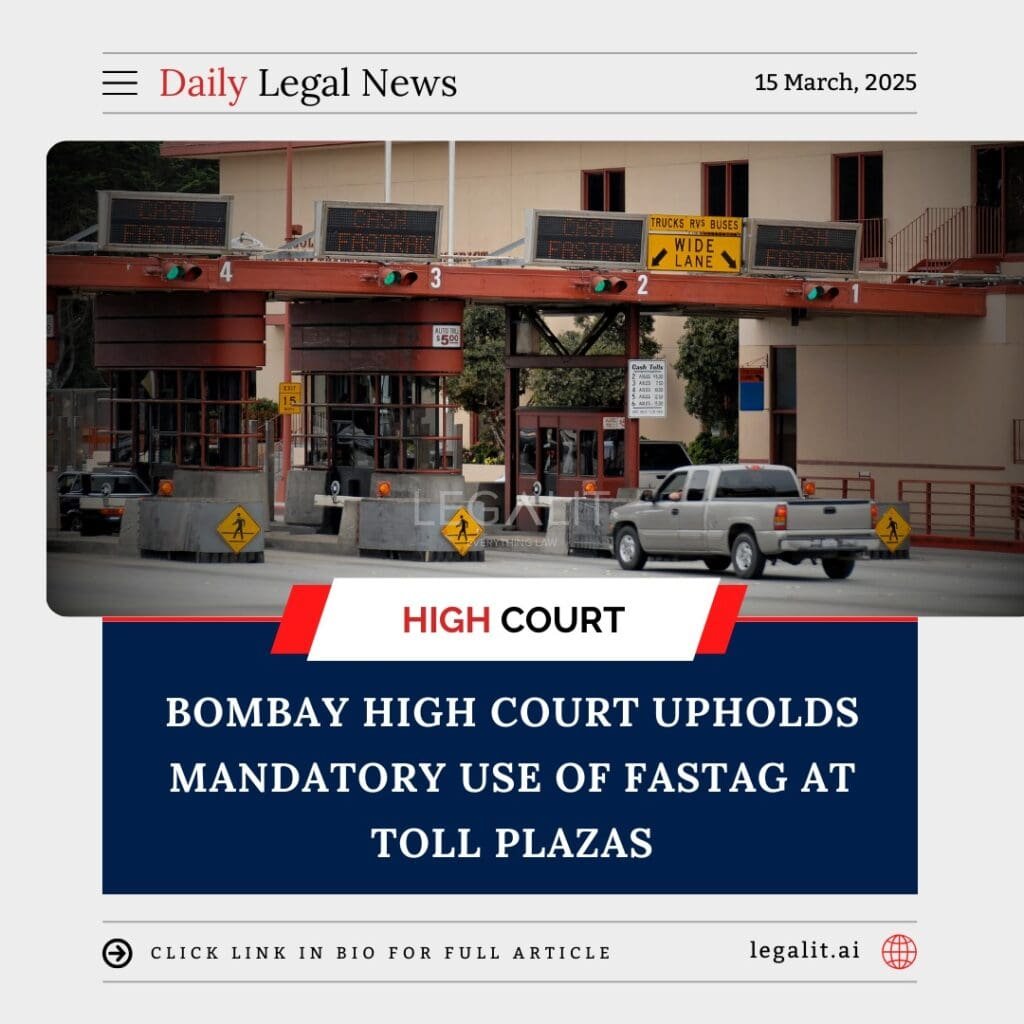
Background
The Bombay High Court has dismissed a petition challenging the mandatory implementation of FASTag for toll payments on highways. The petition, filed by a commuter, argued that making FASTag compulsory violates the rights of citizens by restricting their choice of payment methods. The petitioner contended that the system disproportionately affects those who prefer cash transactions or do not have access to digital payment methods.
FASTag, an electronic toll collection system implemented by the National Highways Authority of India (NHAI), was made mandatory for all vehicles at toll plazas from February 2021. The system uses RFID technology to enable seamless toll payments without requiring vehicles to stop, reducing congestion and improving traffic flow.
Court’s Rationale
The Bombay High Court dismissed the plea on the following grounds:
- Regulatory Authority of the Government
- The court observed that the government has the authority to regulate toll collection systems under the National Highways Act, 1956.
- It emphasized that FASTag is a policy decision aimed at enhancing efficiency and does not infringe upon fundamental rights.
- Public Interest and Convenience
- The court acknowledged that FASTag significantly reduces waiting time at toll plazas, leading to fuel savings and lower carbon emissions.
- It highlighted the importance of modernizing toll collection for smoother highway management.
- Alternative Payment Mechanisms
- The judges noted that while FASTag is mandatory, there are mechanisms in place for users facing technical issues, including hybrid lanes accepting cash in certain cases.
- The petitioner’s concerns about non-digital users were deemed insufficient to override the larger public interest.
- Legal Precedents on Digital Infrastructure
- The ruling aligns with past judicial decisions that have upheld government initiatives aimed at digitization and ease of governance.
- Courts have previously supported digital payment mandates in public service domains, reinforcing the shift toward cashless transactions.
Existing Measures and Government Stance
- National Highways Fee (Determination of Rates and Collection) Rules, 2008
- Provides the legal basis for toll collection and regulation of payment methods.
- Government Justification for FASTag
- Reduces congestion and travel time.
- Enhances transparency in toll collection.
- Minimizes revenue leakage due to cash handling.
Implications of the Judgment
The High Court’s ruling has far-reaching consequences:
- For Highway Users – Confirms that FASTag remains the primary mode of toll payment, making digital transactions the norm for commuters.
- For Traffic Management – Strengthens the push for cashless toll collection, reducing delays and improving highway efficiency.
- For Policy Framework – Reinforces the government’s right to implement policies aimed at technological advancement in public infrastructure.
- For Future Challenges – Sets a precedent that courts may be reluctant to interfere in policy-driven digitization initiatives unless fundamental rights are severely impacted.
Conclusion
The Bombay High Court’s decision upholding the mandatory use of FASTag reinforces the judiciary’s stance on digital governance and modernization of public services. By dismissing concerns over choice of payment methods, the ruling prioritizes efficiency, environmental benefits, and streamlined toll collection over individual preferences. With this verdict, the legal position on FASTag enforcement remains firm, further encouraging widespread adoption of digital payment systems on national highways.